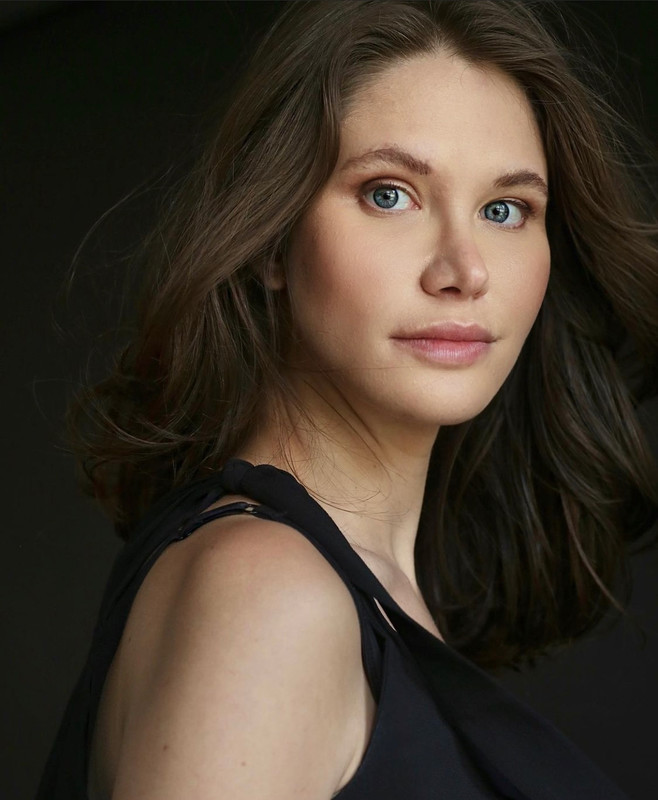
Directed by Claire Chubbuck, ‘Blueberry’ is a drama short that stars Andrew McIntyre as Drew and Sofia D’Marco as Dara, a couple who are torn apart by the miscarriage that they suffered during the Covid pandemic. A self-styled cathartic realist film that features individuals who have gone through this specific trauma in real life, ‘Blueberry’ is a trailblazer in how the audiovisual medium can be used for healing and softening the pain of trauma.
Director Claire Chubbuck approaches the sensitive subject matter with grace and poise and allows the actors to express the pain and sorrow of their ordeal themselves. There is a layer of authenticity to both the film and the performances as we, the audience, know that the actors have experienced this particular trauma in real life as well. A miscarriage is akin to an end of the world type scenario for every new couple out there and it hurts even more when the first child you are going to have ends up dying in a miscarriage. Chubbuck expertly navigates the emotions and the catharsis of this couple enabling the audience to both empathise with the couple and be inspired from their steadfastness.
The most astounding thing about Blueberry is how it makes us, the audience, fall in love with these characters. The writing and the acting is so great that one cannot help but become enamoured with the leads and root for them to not only put aside their differences but heal each other as well. We feel the pain Dara feels and we can’t help but become attached to her. Very few films move the audience in a way that Blueberry manages to do and full marks to Chubbuck for succeeding in this regard.

In the acting department, both Andrew McIntyre and Sofia D’Marco are perfect in their roles and they bring realism and pain to their respective characters. Sofia D’Marco as Dara is soft spoken and sensitive while Andrew McIntyre as Drew is a resolute father who has experienced soul crushing pain. The chemistry of the two leads is fantastic as well with both Dara and Drew playing off of each others’ emotional performances.
Another thing that is impressive about the film is its cinematography. Shot in a backyard-esque set featuring two actors coming together to deal with their trauma, director Claire Chubbuck and cinematographer Mario Garciduenas approach this story of trauma and loss with care and sensitivity. There are wide angle shots that exhibit the emotional distance between the couple interspersed with facial closeups that hint at a form of reconciliation as the two are brought together by their shared pain.

The film’s greatest strength is perhaps in how it manages to accurately illustrate love, loss and grief. Losing a child for a new parent is always one of the hardest things that any human can go through and Blueberry manages to portray this devastating moment as authentically as possible. Chubbuck knows how to immortalise grief and her film has powerful, brief moments where human grief is on display in all its eternal glory.
Equally great is the music that not only accentuates the pain felt by the characters but also alludes to the catharsis and recovery that the couple decide to mutually do moving forward. Invoking emotional pieces from famed composers such as Hans Zimmer and James Newton Howard, the score fits the sombre tone of the story perfectly. The audio-visual nature of the film sells the emotional story and the performances and therefore, makes the entire experience worthwhile.

A poignant look into trauma and sadness that engulfs couples following a miscarriage, ‘Blueberry’ is a raw and unfiltered look into how this monumental pain changes people and what they do to pick themselves up after it has occurred. Claire Chubbuck has made a tremendously moving picture, anchored by terrific performances and a central emotional core that gives the film its authenticity. An emotional gut punch that is moving and poignant, ‘Blueberry’ features fantastic acting set amidst the backdrop of a couple reeling from a devastating tragedy. There is so much to like in this film; from its approach to lingering trauma to how it chooses to deal with it. An all round ace effort from everyone involved, Blueberry is a fantastic short film that needs to be seen.
ABOUT director – CLAIRE CHUBBUCK

The daughter of world-renowned acting coach, Ivana Chubbuck, and late film director, Lyndon Chubbuck, Claire Chubbuck is an emerging female director who spearheads mission-driven content that creates catharsis – she calls it “Cathartic Realism”. A take on the “true story” genre, this art form allows artists to depict their real, often difficult stories, with an eye toward owning your own story and becoming a winner, not a victim. She works with actors to use the traumatic events in their lives in order to make art, both as a film director and as a teacher at Ivana Chubbuck Studios, where she is also the Vice President.









